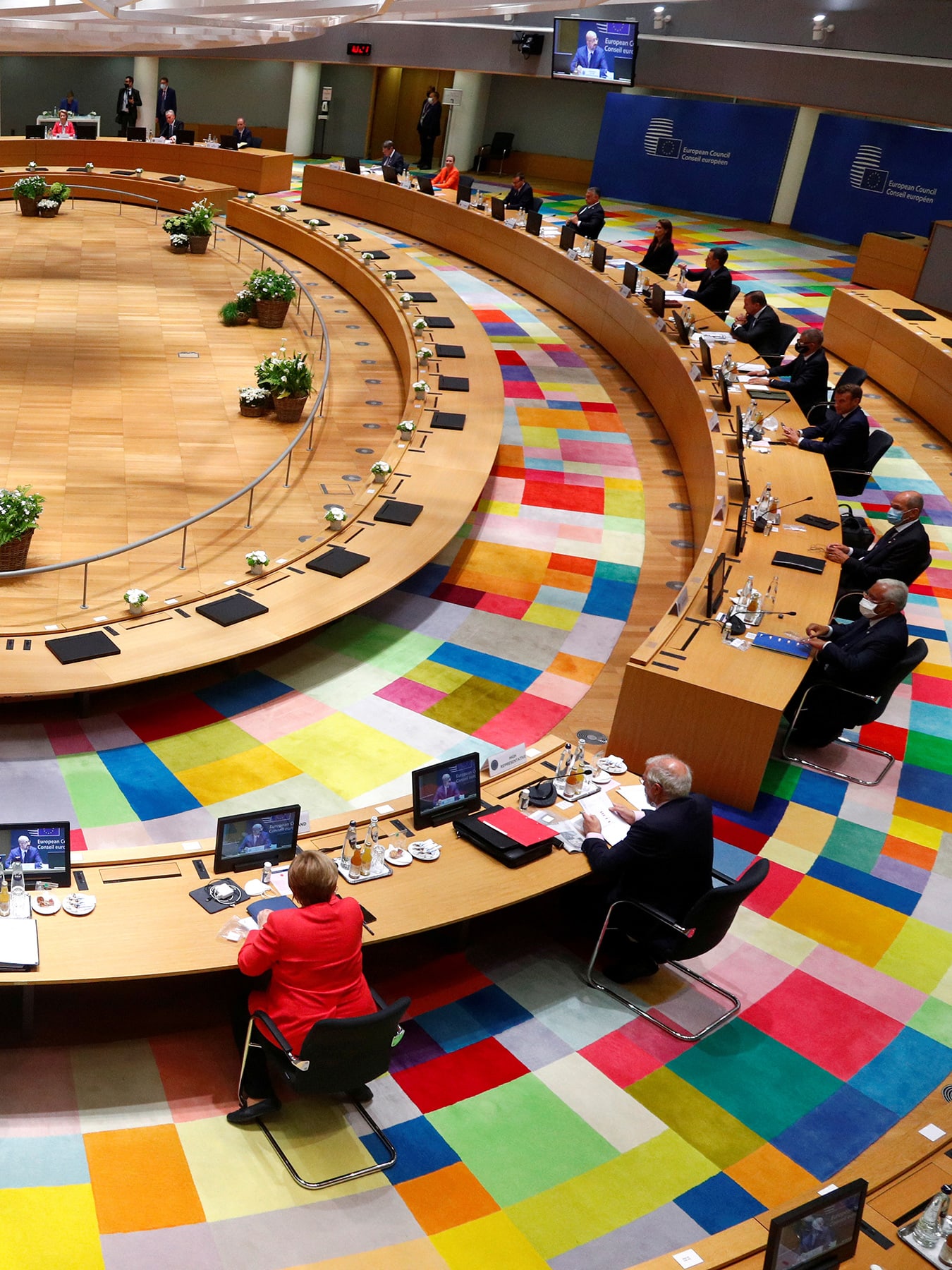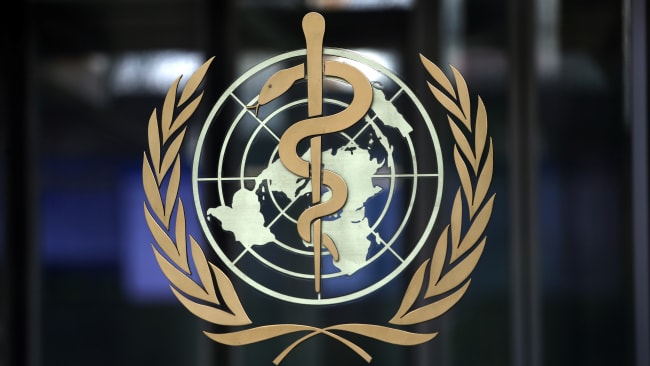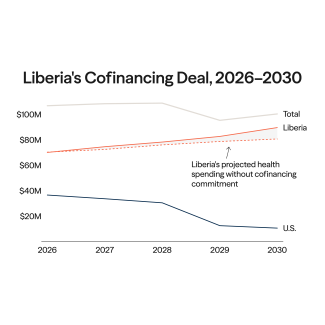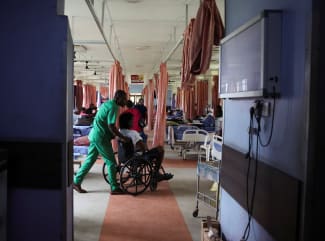As the World Health Organization (WHO) declared COVID-19 a pandemic, countries took actions to slow the spread and avoid overwhelming their own health systems. This pandemic—and the varied responses by countries around the world—significantly highlights how health policy and systems research is crucial for an evidence-based response. Robust, evidence-based health systems research could aid policymakers in understanding the dynamics, performance, and best practices health systems could take during and after a pandemic by laying out a path with appropriate knowledge and scientific evidence.
This information should make health systems more resilient and better able to respond effectively and efficiently
Scientists in the field of health policy and systems research produce this knowledge by conducting solid studies and producing critical analyses that help officials make sound decisions to shore up and strengthen health systems in all settings, including low-and middle-income countries. This information should make health systems more resilient and better able to respond effectively and efficiently to coronavirus or any other health emergency. And in the early days of this crisis, tremendous efforts went into putting together technical guidance, policy analysis, and rapid evidence syntheses from global and national experts at universities, NGOs, think tanks, state and federal agencies, and other organizations—and then feeding this information through journals, institution web sites, policy briefs, and the media to support national response plans of developing countries to COVID-19.

Goals and Competencies of Health Policy and Systems Research
What distinguishes health policy and systems research is that it can be a useful methodology for officials, helping them keep the health system functions and all services and health programs sustained in health emergencies. However, this research is also important in non-emergency circumstances, such as universal health coverage and the equity, quality, accessibility, affordability, efficiency, and responsiveness in health-care delivery. Efforts to assess, understand, and make real-life improvements to health systems outside of times of crisis are the essence of the field.
Efforts to assess, understand, and make real-life improvements to health systems outside of times of crisis
In recent years, the organization Health Systems Global convened a thematic working group where the group members identified seven core competencies for health policy and systems research, which are shown in the table below. They are fundamental guiding principles to help researchers and decision-makers raise policy-relevant research questions, address them using a wide variety of theories, methods, and approaches, collect and interpret well-organized and well-analyzed data, develop meaningful recommendations, and communicate them so that the knowledge is effectively and ethically applied.
Seven Core Competencies—Health Policy and Systems Research
Here is how to gather, translate, and apply evidence-based knowledge for health system strengthening
The pandemic has offered the opportunity to bring the research and policy communities together to promote awareness of the need for health policy and systems research in times of pandemic. Two clear examples were reported recently showing the value of the field in advancing useful insights, appropriate guidelines, and practical plans. Globally, the Alliance for Health Policy and Systems Research, which is hosted by the World Health Organization (WHO) has contributed remarkably to global efforts in curbing the COVID-19 pandemic by establishing various platforms, initiatives, committees, and global research teams to guide national governments worldwide.
Platforms, initiatives, committees, and global research teams to guide national governments worldwide
Another, more regional example is the Knowledge to Policy Center of the American University of Beirut in Lebanon, which has been actively engaged in producing knowledge-related outbreak issues, including implementing effective response plans, best strategies, new technologies, and defining stakeholders' roles. The Alliance for Health Policy and Systems Research indicates that the outputs of this knowledge have been communicated with the local government in Lebanon as well as other governments in the Arab region. In Palestine, a national policy analysis was initiated by health policy experts, and it was disseminated to policymakers responsible for Palestinian preparedness, health systems, and responses.

But despite these positive examples, there have been a wide variety of responses among Arab countries, not all of which have appropriately responded to COVID-19 by sufficiently engaging the academic and scientific communities and policy experts. The simplest explanation of this is that health policy and systems research is inadequately recognized and used, and if this pandemic demonstrates anything, it's the need for strengthened health policy and systems research to be fully embedded in national public health systems.
Time to Adopt and Embed the Health Policy and Systems Research
Health policy and systems research is seen by David Peters, an international health researcher at Johns Hopkins University, as a promising field that could help ministries of health and other relevant organizations improve health systems by adhering to what he and authors of this article define as four substantial organizational pillars.
- Collecting knowledge and fostering information exchanges,
- Sharing experiences and championing past successes,
- Promoting continuous self-improvement and integrating new technologies, and
- Enhancing organizational transparency, trust, and accountability with the public.

Additionally, it is time for adopting and institutionalizing health policy and systems research by regions' governments, and the pandemic event imposed this priority. Strengthening this research should be a strategic priority to all developing countries, including countries of the Middle East and North African region.
A new era of reimagining public health systems and guiding any national efforts
Because this research field can develop specific and clear strategies for war zones or failed states as well as thriving nations by providing comparative analysis across different health systems. Currently, this sort of health policy and systems research and the evidence-based field-ready recommendations it can provide are desperately needed. This was recently affirmed by a group of prominent global health policy scientists. Health policy and systems research could open a new era of reimagining public health systems and guiding any national efforts that every country should initiate for pandemic preparedness and strategies of recovery. The table below captures this approach.
Reimagining Public Health Systems in the Wake of COVID-19
Health policy and systems research could guide national efforts and help countries around the world
By reimagining public health systems in the wake of COVID-19, fundamental changes for improving human lives will be possible at the three levels of health systems—micro (improving access to treatment), meso (strengthening the resilience and capacity of local health facilities, clinics, and hospitals), and macro (shoring up responses across sectors and throughout an entire state or national system).
In summary, the field of health policy and systems research could be the best choice to apply this modernistic approach and adopt this new thinking towards not only making a transformational renaissance in public health systems but also in reforming other sectors, disciplines, and societies, especially in fragile and low-resourced developing countries.












